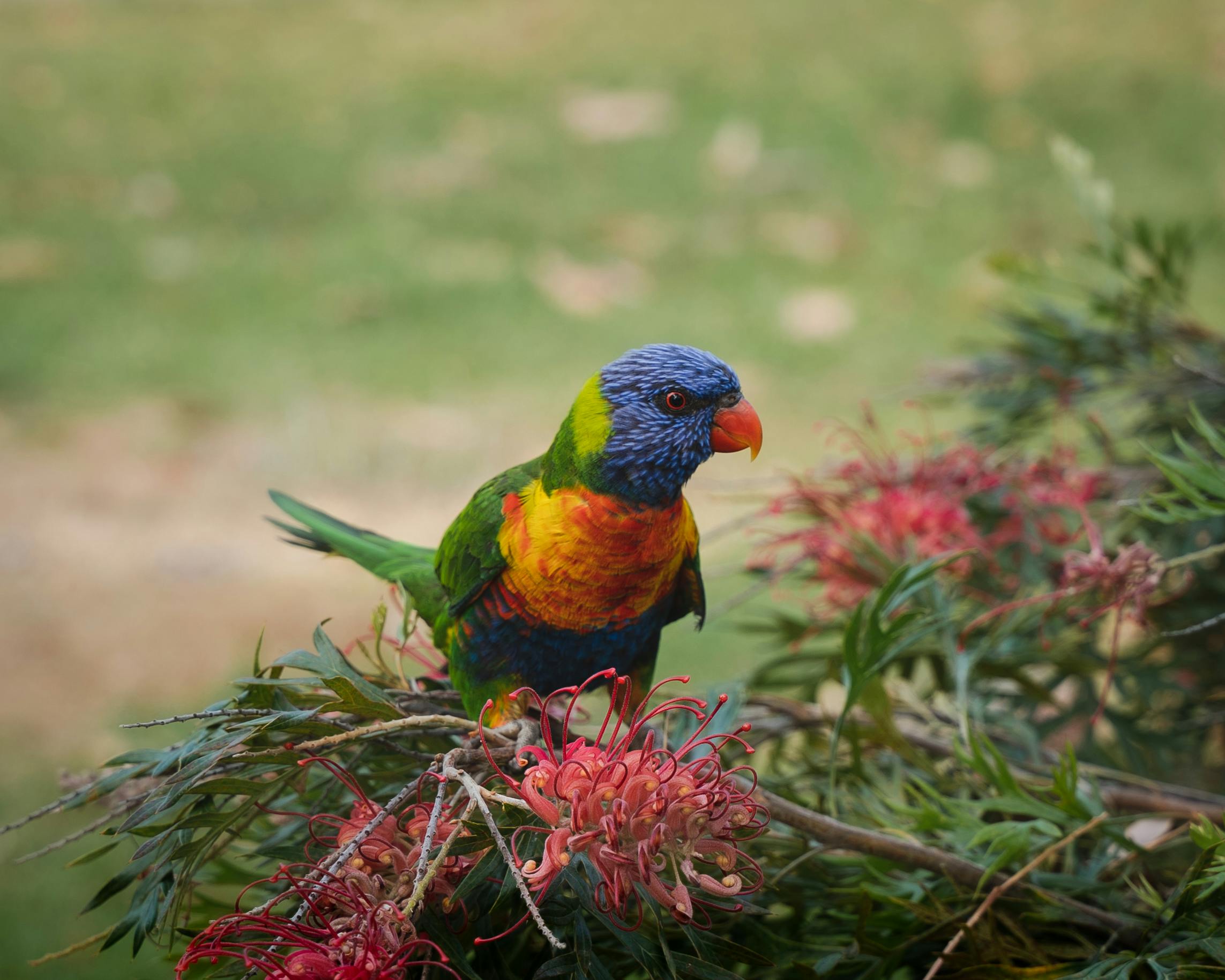
Essential Guide to Choosing Rabbit Cat Food for Happy, Healthy Pets in 2025
As a dedicated pet owner, ensuring your cat receives the best nutrition possible is essential for their health and happiness. In 2025, understanding the various options available for rabbit cat food can significantly enhance your feline's diet. Not only is rabbit meat a premium protein source, but it also offers numerous health benefits that cater to cats with allergies or sensitive stomachs. This comprehensive guide will navigate you through the benefits of rabbit-based diets, factors to consider when choosing the best rabbit cat food, and expert recommendations for various needs, ensuring a vibrant life for your furry friend.
With the rise of premium and organic pet food options, rabbit cat food has carved a niche in the specialty diets category. Pet owners are now more conscious of the ingredients in their pet’s food, seeking nutritional transparency and health benefits. In this article, we will explore how to select high-quality rabbit cat food, its advantages, and provide insight into popular brands and formulations.
Key takeaways from this guide include:
- The nutritional benefits of rabbit meat as a primary protein source.
- How to choose the right rabbit cat food based on your cat’s specific dietary needs.
- Recommendations for the best rabbit cat food brands available in 2025.
- Insights into various feeding options, including dry, wet, and homemade rabbit cat food.

Understanding the Benefits of Rabbit Cat Food for Your Feline Companion
Choosing the right cat food is crucial for your pet's overall health. Rabbit cat food is quickly becoming a favorite among health-conscious pet owners due to its unique benefits.
Nutritional Advantages of Rabbit as a Primary Protein Source
Rabbit meat is lean and high in protein, making it an excellent option for maintaining a healthy weight in cats. It's also rich in essential nutrients like vitamins B12 and B3, which support energy metabolism and nervous system function. The high protein content in rabbit cat food provides the necessary energy for active cats, promoting muscle health and vitality.
Moreover, rabbit is naturally low in fat compared to other meats, making it ideal for weight management. For overweight cats or those needing to slim down, high-protein rabbit cat food can support weight loss while ensuring they receive adequate nutrition.
Hypoallergenic Properties of Rabbit Cat Food
Many cats suffer from food allergies, making it critical to find hypoallergenic options. Rabbit is considered a novel protein, meaning many cats haven’t been exposed to it before; therefore, it is less likely to trigger allergic reactions. Switching to rabbit cat food may alleviate symptoms associated with food sensitivities, such as gastrointestinal issues or skin irritations.
Organic and Grain-Free Options
In 2025, the demand for organic and grain-free pet foods continues to rise. High-quality brands are now offering organic rabbit cat food, ensuring that your pet's meal contains minimal additives and preservatives. Grain-free rabbit cat food also provides a diet closer to what cats would have encountered in the wild, aiding in digestion and overall health.
How to Choose the Best Rabbit Cat Food for Your Needs
When selecting rabbit cat food, it’s essential to consider several factors that contribute to a balanced diet.
Evaluate Ingredient Quality
Always start with the ingredient label. The first ingredient should ideally be rabbit meat or rabbit meal, which provides the most nutritional value. Look for food that features additional wholesome ingredients like vegetables, which can enhance the diet with vitamins and minerals.
Focus on brands that emphasize high-quality protein sources and avoid fillers. High-fiber rabbit cat food options can provide healthy digestion and control hairballs, helping keep your cat comfortable and happy.
Consider Your Cat's Specific Dietary Needs
Take into account your cat's age, weight, and health conditions. For kittens, look for rabbit cat food formulated for growth, which includes higher levels of protein and fat. Older cats or those with weight concerns may benefit from rabbit cat food for weight loss, designed to contain fewer calories while maintaining nutrition levels.
Explore Different Feeding Forms
Rabbit cat food comes in various forms, including dry, wet, and freeze-dried options. Wet rabbit cat food is excellent for hydration, while dry varieties can help maintain dental health. Freeze-dried rabbit cat food offers convenience and is nutrient-dense. Mixing different forms can provide variety and keep your cat interested in their meals.

Assessing Top Rabbit Cat Food Brands: What to Look For
With several rabbit cat food brands on the market, knowing what to look for can simplify your choices.
Vet-Recommended Rabbit Cat Food Brands
Consulting your veterinarian is crucial when choosing any pet food. Many veterinarians recommend specific premium rabbit cat food brands known for their balanced nutrition and safety standards. Look for established brands that are vet-trusted and focus on creating high-quality food tailored to cats' needs.
Rabbit Cat Food Reviews and Ratings
Read product reviews from other pet owners and professionals to gauge the effectiveness and satisfaction of specific rabbit cat food brands. High ratings often correlate with quality ingredients and overall pet health improvement.
Understanding the Price vs. Quality Relationship
While affordable rabbit cat food options exist, it’s vital to consider the balance between cost and quality. Investing in high-quality rabbit cat food can prevent future health issues and potentially save on veterinary costs in the long run.
Feeding Your Cat Rabbit: Tips for Inclusion in Their Diet
Integrating rabbit into your cat's diet can enhance their meal plan significantly. Here are some practical tips for feeding.
Introducing Rabbit Cat Food Gradually
Whenever you introduce a new food to your cat's diet, it’s recommended to transition gradually. Begin by mixing a small amount of rabbit cat food with their existing food, increasing the ratio over a week or two. This approach helps reduce digestive upset and allows your cat to adjust to the new flavor.
Homemade Rabbit Cat Food Recipes
If your cat is particularly picky, consider preparing homemade rabbit cat food. Simple recipes using high-quality rabbit meat, mixed with appropriate vegetables and supplements, can create delicious meals that cater to your cat's individual taste and nutritional needs. Research and consult with your vet for ingredient guidelines and proportions.
Monitoring Your Cat's Health and Preferences
Keep a close eye on how your cat reacts to their new diet. Notice any changes in their health or energetic behavior, and maintain a record of their food intake. If you observe any adverse reactions, consult your veterinarian for personalized dietary recommendations.
Q&A: Common Queries About Rabbit Cat Food
Is rabbit cat food suitable for all cat breeds?
Yes, rabbit cat food can be suitable for almost all cat breeds and life stages, from kittens to seniors. It’s essential to select appropriate formulations based on specific needs, such as high-protein options for active cats and specialized diets for cats with health issues.
What are some good brands of rabbit cat food?
Brands like Wellness CORE, Instinct, and Orijen offer high-quality rabbit cat food options. These brands are known for their commitment to using premium ingredients and providing transparent nutritional information.
How does rabbit cat food compare to other meats?
Rabbit meat is leaner and less likely to cause allergic reactions than more common cat meats like chicken or beef. This makes it a healthy alternative for cats with dietary restrictions or allergies.
Can I give my cat treats made of rabbit?
Yes! Rabbit treats for cats, like rabbit sticks or dried rabbit bites, can complement their diet. Just ensure they are high-quality and free from harmful additives.
How often should I feed my cat rabbit-based cat food?
The feeding frequency may vary based on your cat's age, size, and activity level. Generally, adult cats are fed twice daily, while kittens may require more frequent meals. Always follow the guidelines on the food packaging and consult your vet for personalized advice.
This essential guide showcases the profound benefits of rabbit cat food while equipping you with vital knowledge for making informed decisions about your pet’s nutrition. By focusing on quality ingredients, monitoring your cat's needs, and staying up-to-date with current options in the market, you can ensure a happy and healthy life for your feline companion.